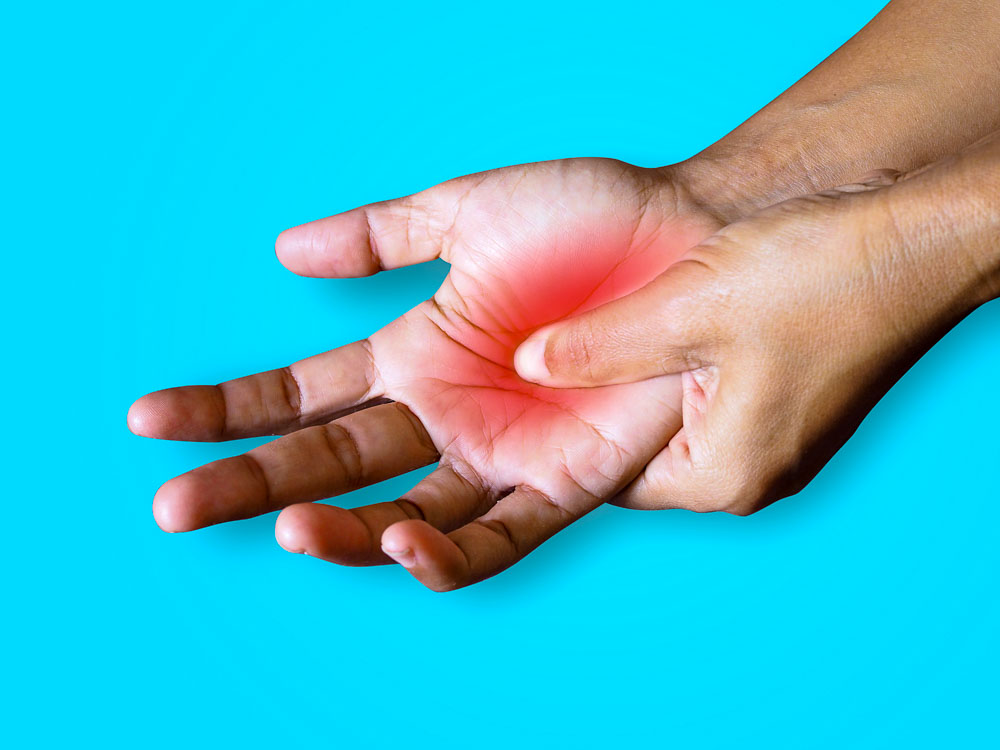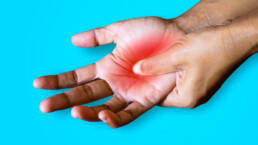There are a number of conditions and issues that cause peripheral neuropathy. In the United States, the most common cause is diabetes. In many cases there is a treatment that can help fix the issues experienced by the patient. However, some cases of peripheral neuropathy will not be cured. The goal is to minimize symptom severity and prevent further damage to the affected nerves.
What is Peripheral Neuropathy?
Peripheral neuropathy refers to damage that has occurred to one or more nerves in the body, leading to a host of symptoms that can include muscle weakness, pain, numbness and tingling. It’s most common to experience this condition in the hands and feet, but other areas of the body can experience symptoms as well.
The peripheral nervous system in the body is a very complex system of nerves that are present outside of your spine and brain. Your spine and brain function as part of your central nervous system, and they must be able to properly communicate with your peripheral nervous system. When this communication can’t be facilitated properly because of damaged nerve cells, symptoms become prevalent.
Are There Different Types of Peripheral Nerves?
The symptoms that you experience when you have peripheral neuropathy will be based on the nerves that have been damaged. Your peripheral nervous system consists of three different types of nerves, each with a specific role.
Sensory Nerves
These nerves carry messages through your spinal cord between your brain and your five senses. If you have an interruption in this communication, this can cause an inability to feel heat or cold, the inability to sense texture, a change in taste, and much more.
Motor Nerves
Motor nerves have the function of traveling in the opposite direction as the sensory nerves do. They communicate messages between your brain and your muscles, telling your muscles how they should be contracting and moving.
Autonomic Nerves
Your autonomic nerves and autonomic nervous system are responsible for a variety of bodily functions that we do automatically, such as breathing, regulation of heart rate, blood pressure, digestion and sweating.
Is Peripheral Neuropathy Common?
This is actually a very common condition that approximately 30 percent of the U.S. population has. It can affect people of all ages, but older people are at an increased risk. Common risk factors include things like diabetes, high blood pressure, obesity, high cholesterol and alcoholism. Physical trauma or compression of peripheral nerves can also be cause for concern.
Some people find that their symptoms appear suddenly (as is most common with trauma), while others notice a slow progression that worsens as they get older. In the last couple of years, we have even treated a handful of COVID-induced neuropathy cases.
How Do I Know If I Have Peripheral Neuropathy?
We’ve talked a little bit about the symptoms that are present when a person has peripheral neuropathy, but those symptoms often mimic other conditions as well. If you are dealing with one of the following health issues, peripheral neuropathy may also be something that’s causing your specific symptoms. You should talk to your doctor about learning more about how you can be diagnosed with peripheral neuropathy.
Diabetes
As much as 60 to 70 percent of the diabetic population in the U.S. also deals with peripheral neuropathy. Many people experience burning sensations in their hands and feet as well as numbness.
Traumatic Injury
If you’ve recently experienced a fall, accident, bone break or fracture, neuropathy may have also occurred because of compression to your nerves.
Autoimmune Disorders
There are a number of infections and autoimmune issues that can result in peripheral neuropathy. Some of the most common are lupus, rheumatoid arthritis, Sjogren’s syndrome and Guillain-Barre syndrome. It’s not uncommon for other issues like shingles, chicken pox, Lyme disease and hepatitis C to also cause peripheral neuropathy.
Tumors
Tumors can be located in an area of the body where peripheral nerves may be compressed. In this situation, removal of the tumor through a surgical procedure may alleviate your peripheral neuropathy symptoms.
Medical Treatments
There are different treatments and medications that are used for specific conditions that have a known side effect of causing peripheral neuropathy symptoms. Medication for HIV and seizures as well as treatments like chemotherapy can lead to symptoms.
Vascular Problems
Blood flow can be decreased to areas of the body like the arms and legs when you have vascular health issues. Neuropathy can be a side effect as well as complications like blood clots.
Nutrient Deficiencies
There are certain nutrients that our bodies need in order to promote healthy nerve function. If you are deficient in vitamins E, B1, B6 or B12, you may notice an increase in peripheral neuropathy symptoms. A well-rounded diet and the use of supplements can sometimes reverse this condition and prevent further nerve death.
 Symptom Checklist: If you suspect that you may have peripheral neuropathy, these are some of the common warning signs to watch out for:
Symptom Checklist: If you suspect that you may have peripheral neuropathy, these are some of the common warning signs to watch out for:
- Tingling in your hands and feet
- Sharp, burning pain
- Inability to sense hot or cold
- Increased falls
- Dizziness
- Muscle twitching
- Abnormal heart rate or blood pressure
- Incontinence
- Sexual dysfunction
If you have been diagnosed with peripheral neuropathy and are looking for alternative treatment options that can better your quality of life, reach out to Apex Chiropractic for more information. You can call us at (720) 328-1790 or reach out through our website.

Ready to See the Best Chiropractor in Louisville, CO?
Apex Chiropractic believes in thriving through life, not suffering in it. We believe that the activities that we want to partake in do not only desire but are necessary, just as necessary as our daily activities. In order to thrive in life and not suffer, we have to be completely in tune with our bodies. Schedule your appointment with us, today.
Like this article? Spread the word!
Related Posts
June 29, 2023
The Potential Mechanism of COVID Vaccine-Induced Peripheral Neuropathy: Numbness and Tingling in the Hands and Feet
Discover the potential mechanism behind COVID vaccine-induced peripheral neuropathy and…
June 9, 2023
Diabetic Neuropathy: Understanding the Connection Between Diabetes and Nerve Damage and How Chiropractic Care Can Help
Explore the connection between diabetes and nerve damage in our informative blog on…
April 10, 2023
Guide to Complex Regional Pain Syndrome
Complex regional pain syndrome causes substantial pain that interferes with completing…






